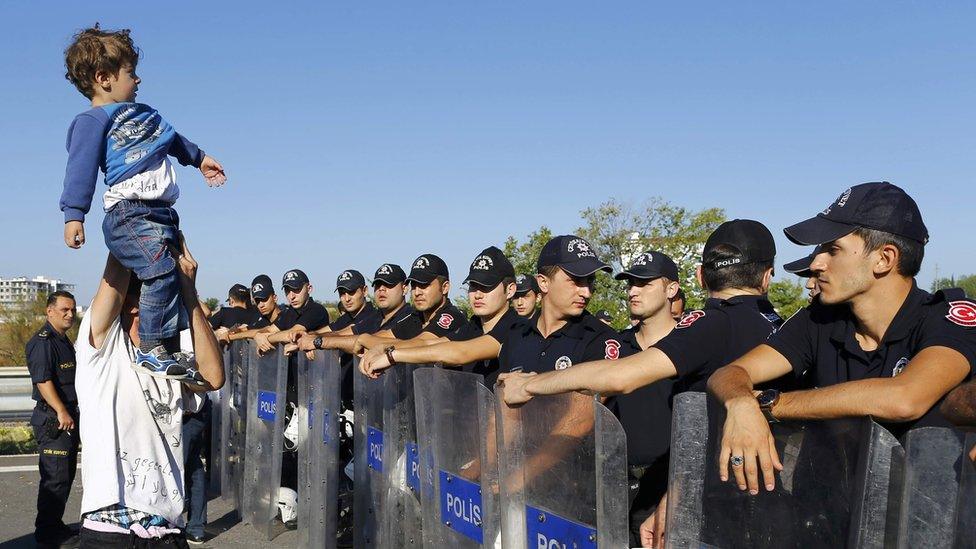Migrant crisis: Why Central Europe resists refugee quota
- Published
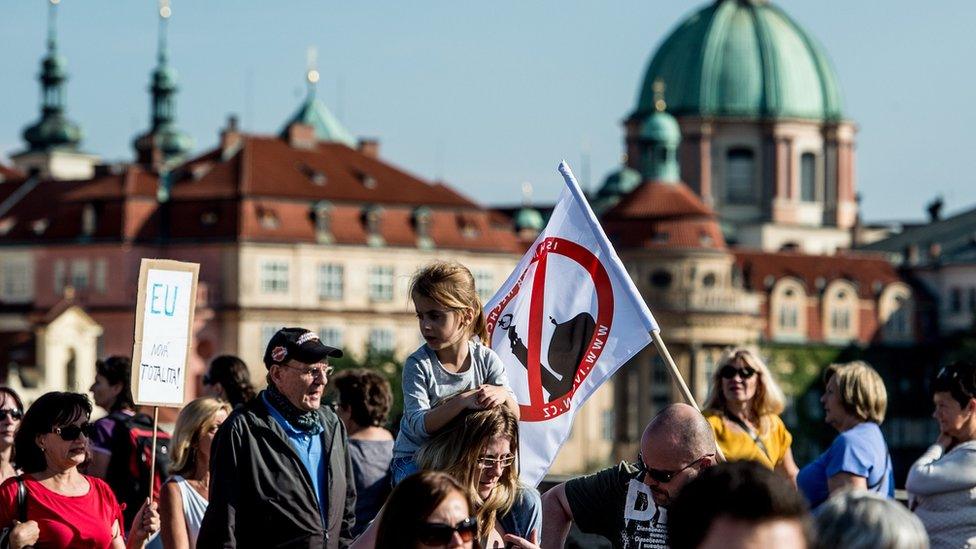
Many in Central Europe fear that binding EU quotas for taking in refugees will lead to changes in their society
The EU faces what could be two bruising summits this week over a proposal to redistribute an extra 120,000 asylum seekers throughout Europe.
Central Europe is putting up fierce resistance to the idea of binding EU quotas, although the Czech Republic now says it might be willing to accept far more than its initial offer of 1,500 people - if the system remains voluntary.
On Monday 14 September, at around 8am, a young Czech woman took out her phone and dialled the police. Terrified and close to tears, she told the operator she had just seen what she described as a dark-skinned man, dressed in black overalls, with what looked like a sniper's rifle slung over his shoulder.
The police - in the small town of Domazlice, near the German border - rushed to the scene. They quickly apprehended the man. He wasn't a member of Islamic State or any other terrorist organisation.
He was a chimney sweep, dusted in soot, and carrying his telescopic brushes.
This nation - and much of this region - is in the grip of an anti-refugee hysteria. The Domazlice chimney sweep - his face no doubt even more ashen than usual as he was questioned - was merely its latest victim.
Unease as Czech police ink numbers on migrants' skin
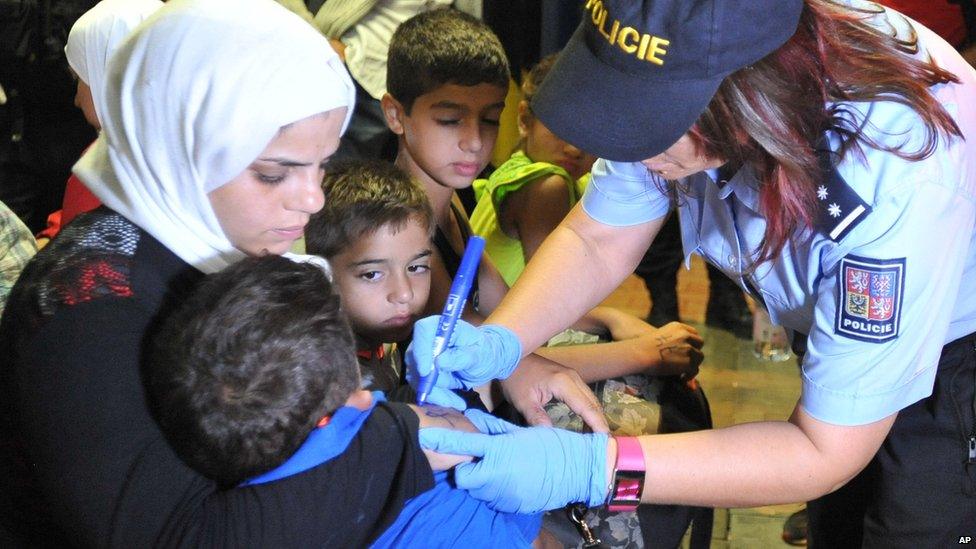
This month, Czech police were widely criticised for writing numbers on the skin of migrants with felt-tip pen
In another incident, police in the town of Mlada Boleslav were called out to investigate reports of three dark-skinned refugees lurking suspiciously in the town centre.
They turned out to be three midfielders from Mlada Boleslav's first division football club, originally from France, Senegal and the French island of Guadeloupe.
Fears for society
It's not that there are no foreigners in the Czech Republic. According to the Czech interior ministry there are 458,000 foreign nationals living in the country legally - out of a total population of 10.5 million - not to mention those who have become Czech citizens.
But with the exception of a substantial and well-integrated Vietnamese community, the overwhelming majority are white.
Many are Slav. Most are Christians, but the Czech Republic is considered one of the least religious countries in the world.
The Muslim population is tiny; less than 20,000, according to the last census in 2010. The country's only minaret is an 18th-Century architectural folly, located in the grounds of a neo-Gothic castle.
Like their former communist neighbours, Czechs simply have not been exposed to the kind of immigration from Africa and Asia that has transformed societies, palates and minds further west.
"There's a general fear in this region of societal change manipulated by political leaders," said Milan Nic, director of Bratislava-based think tank, the Central European Policy Institute, external.
"Our societies are still not very diverse or open. Some Central European countries like Slovakia have had 400 years of emigration and only a few years of immigration," he told the BBC. "This crisis came too fast to digest."
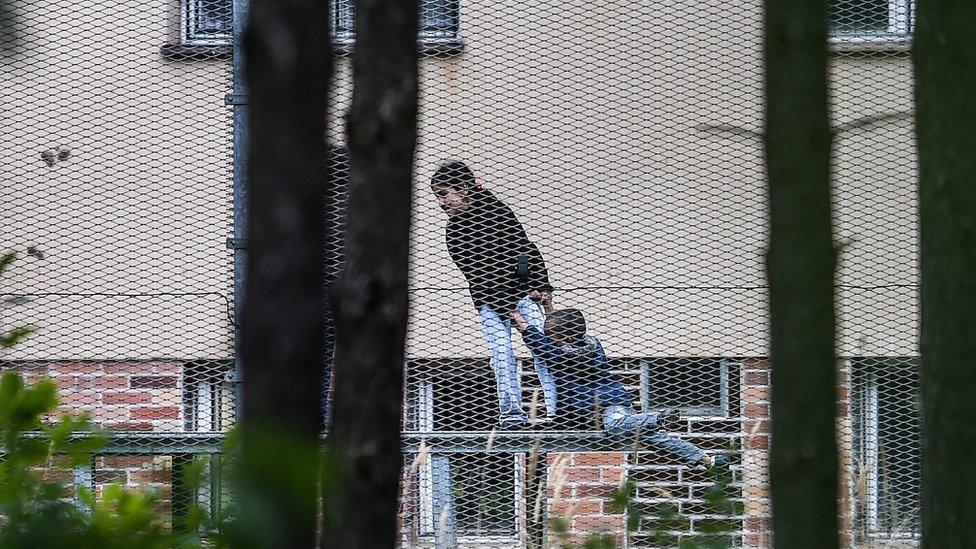
The Czech government says it could accept more than its initial offer of 1,500 asylum seekers - but only if the system remains voluntary
So when Central European leaders say things that would see their Western counterparts excoriated, they do so knowing it will play well in their nations' living rooms.
'Tsunami'
Slovak Prime Minister Robert Fico spoke recently of a Europe under threat from an "onslaught" of migrants.
If his country accepted forced distribution of asylum-seekers under an EU quota system, "then we will wake up one day and have 100,000 people from the Arab world and that is a problem I would not like Slovakia to have", he said.
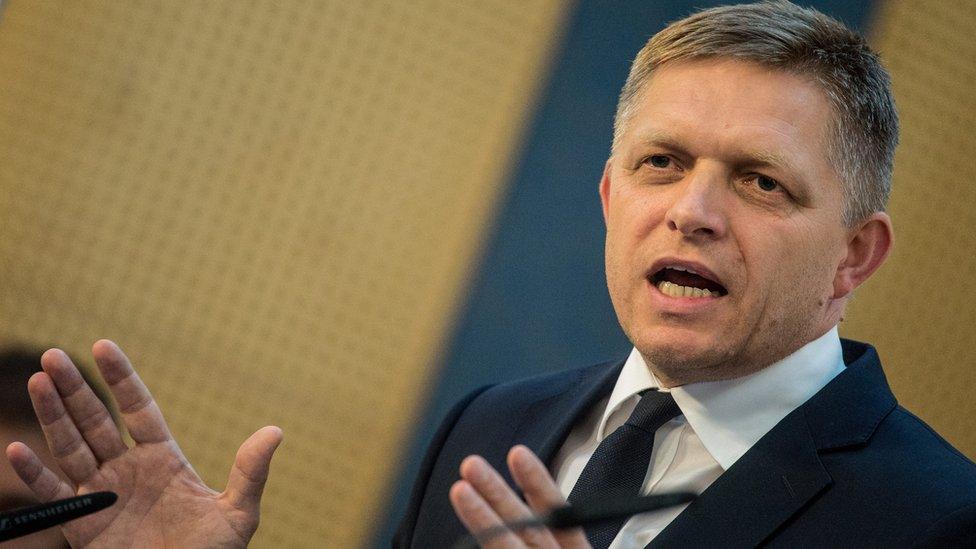
Slovak PM Robert Fico has come out resolutely against taking a compulsory quota of asylum seekers
Slovakia has so far offered to take in 200 refugees. Preferably Christians, it says.
Czech President Milos Zeman has made similar remarks. Two years before he was elected, he described Islam as the "enemy of euro-Atlantic civilisation". "Calling someone a moderate Muslim is like calling someone a moderate Nazi," he told the weekly magazine, Reflex, in 2011.
President Zeman now talks of a "tsunami" of migrants poised to engulf Europe. He advocates a far more robust defence of the EU's external borders - a view shared in Warsaw, Bratislava and Budapest.
Mr Zeman's post is a ceremonial one, but the Czech government has also been talking tough on quotas. Its opposition rests on three central objections frequently voiced throughout the region:
Quotas would deprive their countries of the sovereign right to decide their own asylum policies
They would encourage more refugees to come
Most critically of all, quotas would not work, because refugees would not stay here
"These people want to go to Germany. What mechanism will be put in place to keep them here in the Czech Republic?" the Czech interior minister asked recently.
These are not unreasonable arguments, perhaps. The view from Central Europe is that, so far, their Western colleagues have been unwilling to hear them.
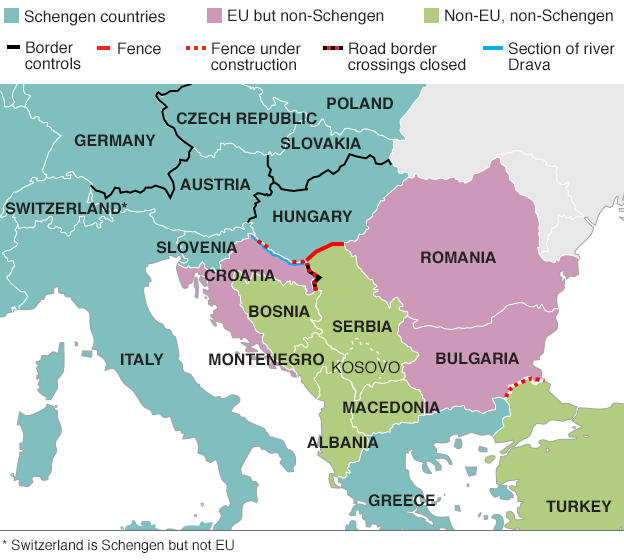
- Published21 September 2015
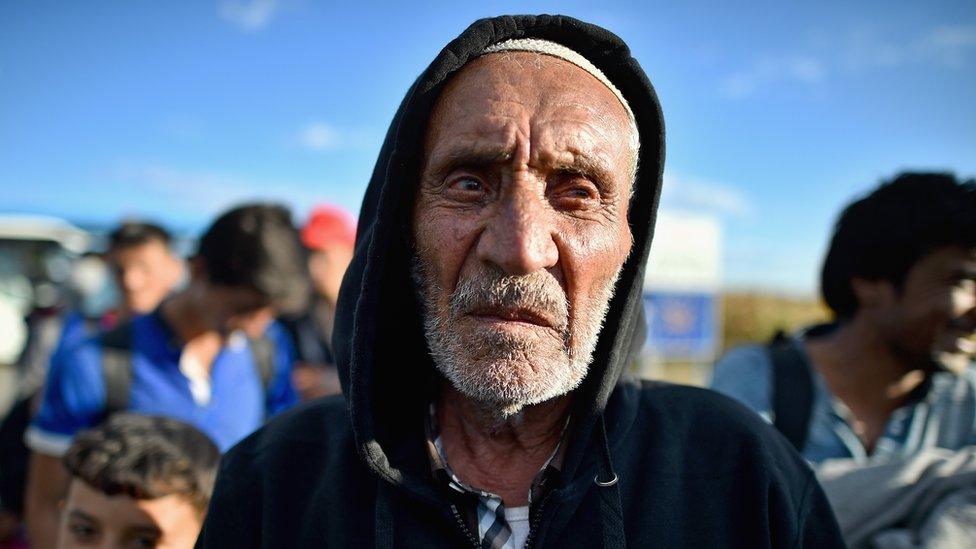
- Published4 March 2016
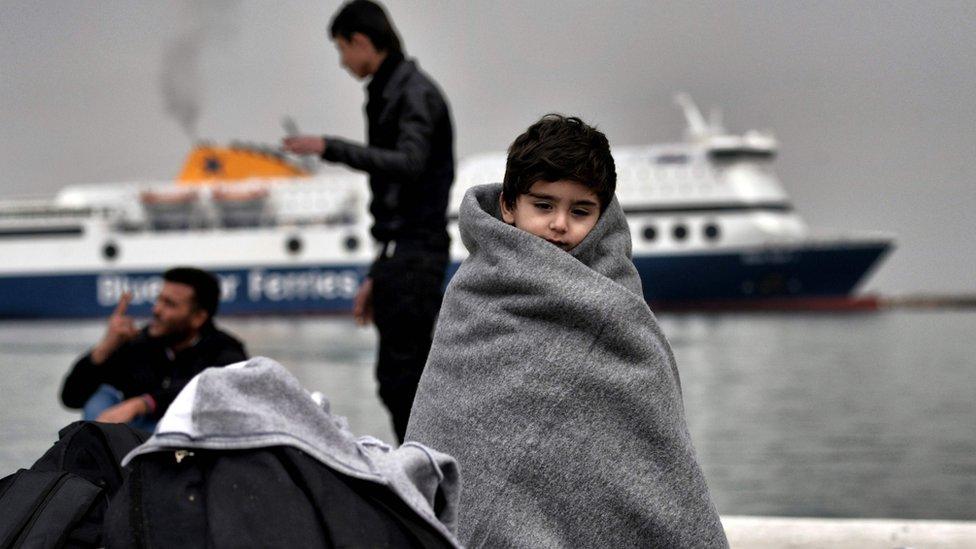
- Published4 March 2016
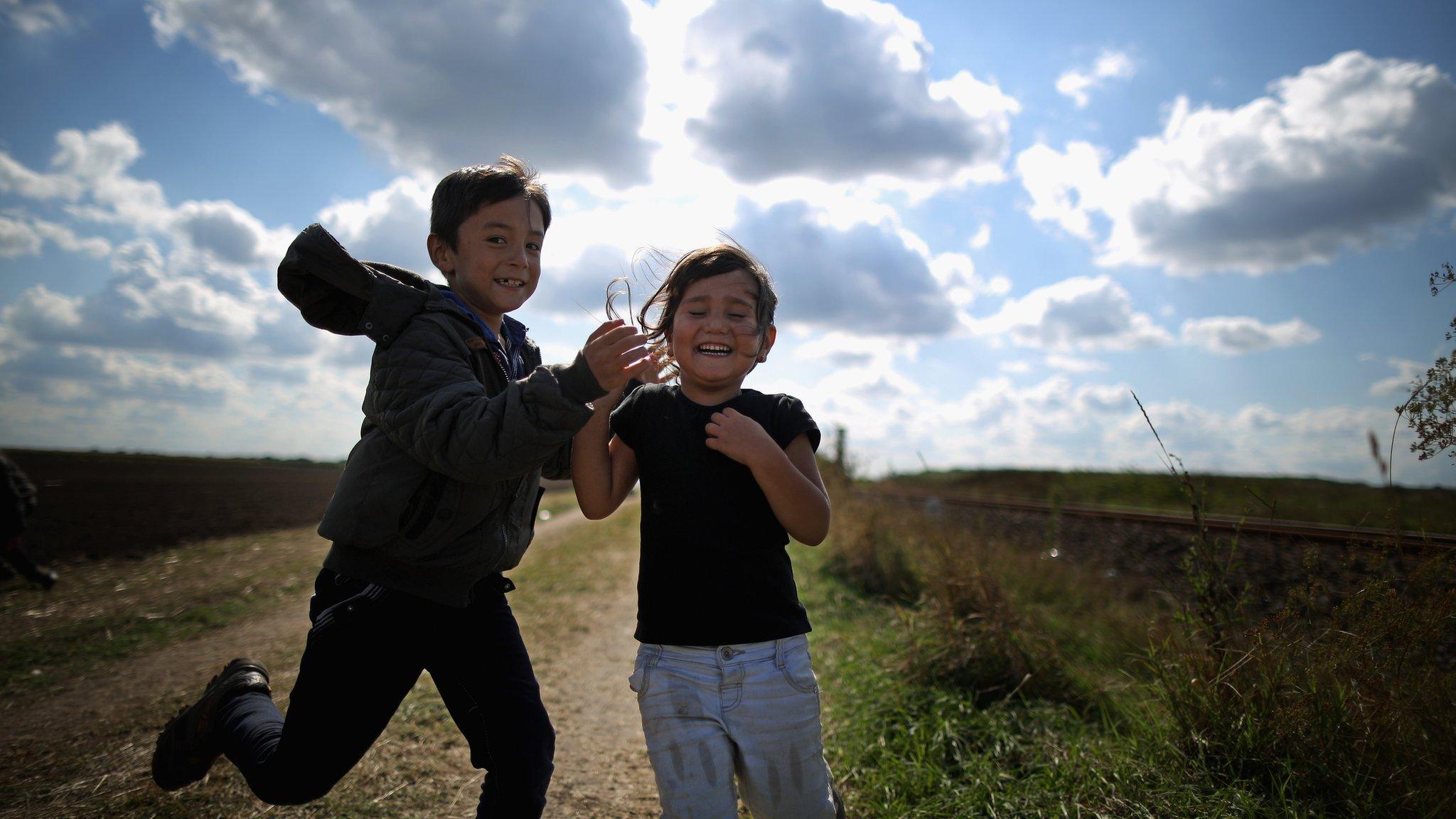
- Published24 April 2016
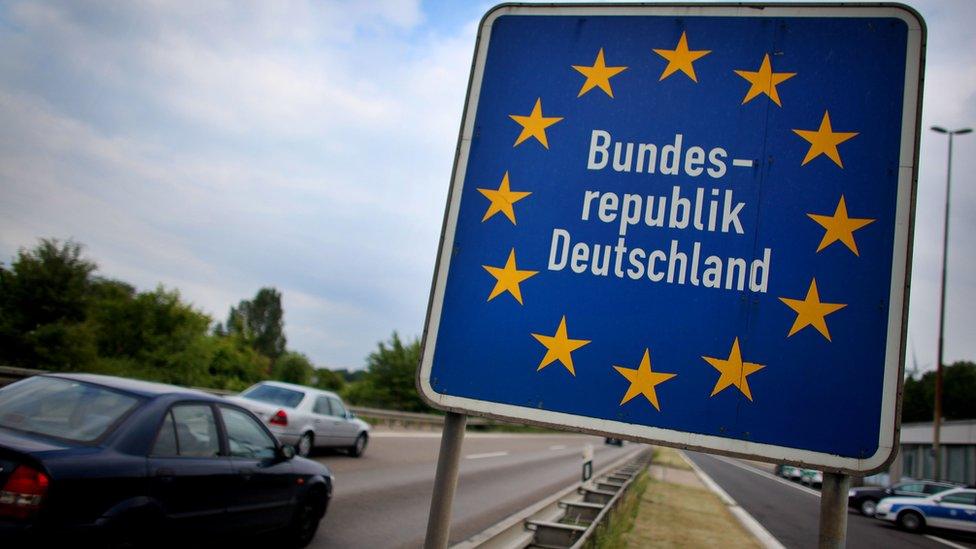
- Published9 September 2015
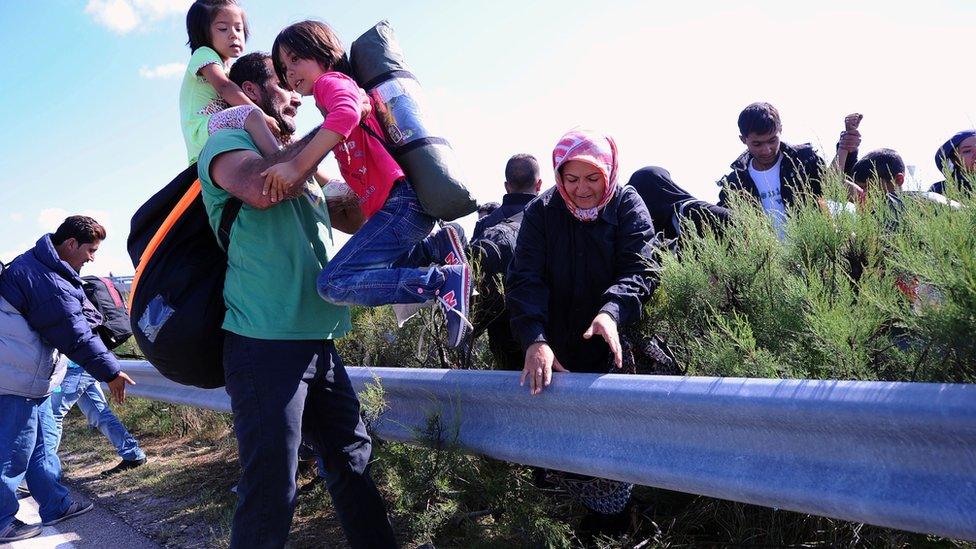
- Published19 September 2015
